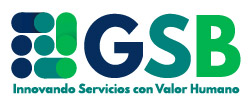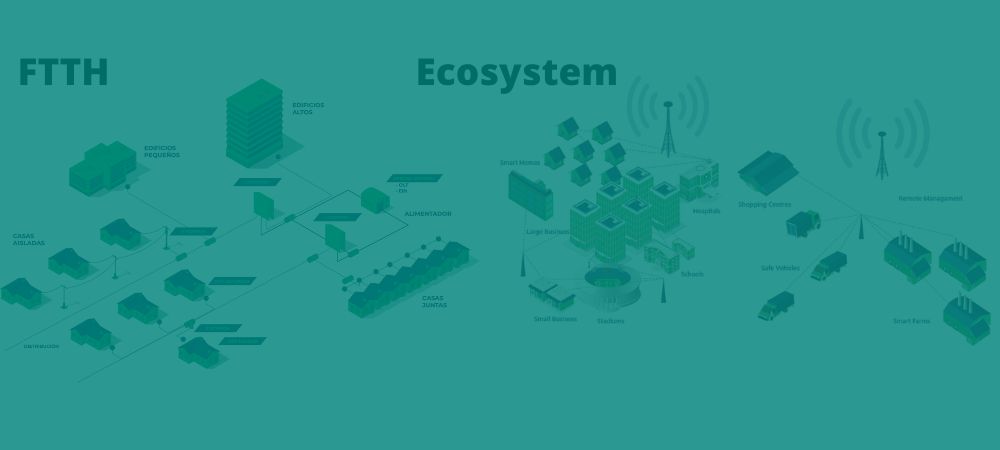By: Kalid Zambrano, Androu Campos, Luis Velazquez, Evaristo Herrera and Laura Soriano Hernandez
GSB Consultants
Much is heard in our field of technology about CRM solutions for companies but few really know the potential of the same and especially the impact they can have on their business strategies, because as the population increases and therefore the number of competitors, companies, regardless of their sector, are constantly forced to direct part of their objectives to the management and relationship with their customers both to provide better care and experience and to have internal processes that streamline and optimize tasks.
 But what is a CRM?
But what is a CRM?
Well, the acronym refers to Customer Relationship Management (CRM) something like Customer Relationship Management, but I think that even with this it is not clear, so let’s see it as a tool or software that allows a strategic knowledge of customers, their preferences and with this we can have an efficient management of their information within the organization, so that there can be a proper development of all internal processes such as sales, marketing and services, both in small, medium and large companies.
In more technical terms, it is a support information system using data warehouse technologies for the generation of reports, dashboards and key business indicators, functionalities for marketing campaign tracking and business opportunity management.
One of the technologies that in the last decade has had great positioning in the market is Microsoft CRM, which in turn is part of the Microsoft Dynamics business software family. Its current version is 2016. Dynamics CRM is characterized by offering a fast, flexible and economical solution through a pleasant experience to the user and developers, since it is developed under the .net Framework.
Other CRM
Obviously Dynamics is not the only CRM tool in the market, within this category there are other renowned tools such as SalesforceThe development kit, qualified as one of the best in the market and used by the main companies in various sectors, is also available that allows to create business specific appsThe company also has a store for the purchase of new applications that can be adjusted to the specific needs of the business. This is a product suitable for companies looking for full CRM functionality, and can be adapted to the needs of a large company.
Oracle Sales Cloud is another CRM tool based on open standards, features an intuitive interface, plus Android and iOS apps and support for Oracle’s enterprise social network. However, it comes at a high price, costing between $100 and $200 per user per month, depending on the edition (Standard, Enterprise or Premium).
NetSuit is perhaps more advisable for medium-sized companies, markets cloud-based business management software since 2007, it is not very competitive in terms of pricing, being a somewhat expensive solution: the basic package starts at $79 per month per user, while NetSuite CRM+ costs $129 per month per user. For that price you can get useful, highly customizable options for automating your sales network and marketing team, as well as for order management, sales forecasting, and much more.
One more is SugarCRM, this product is suitable for companies interested in collaborating effectively with large teams, can be customized and easily integrated with various third-party applications. It is a cloud-based solution following a subscription model, a good choice for a large enterprise looking for a powerful CRM tool focused on customer knowledge and information collaboration aimed at ensuring successful customer engagement.
 Now we will focus on talking about the benefits of MS Dynamics since it is part of the implementations performed by our customers, therefore our consultants have actively participated and can delve into the advantages and critical success factors.
Now we will focus on talking about the benefits of MS Dynamics since it is part of the implementations performed by our customers, therefore our consultants have actively participated and can delve into the advantages and critical success factors.
Advantages
Speaking of advantages, the first that comes to mind is integration with the rest of the Microsoft ecosystem, from Outlook and Office to enterprise resource planning applications such as Dynamics GP. Microsoft has also added mobile support for Dynamics CRM, which now works on iOS devices, Android phones, Windows Phone and Windows 8 tablets. Companies that use Outlook should consider Dynamics CRM, as it makes it easier to track email for an account, contact or opportunity. The optimized wizard-based user interface seems to be a bit difficult to navigate in the web version but is highlyadaptable. with quick customizations, extensible data models and mapping tools to help create a solution that meets the needs of businesses and users, security and security management, role-based access to information and data with and without connection, which provides users with personalized access to the information they need. It is designed for global business so it supports multiple languages and currencies in multiple time zones so you can compete globally.
Complements
Microsoft Dynamics 365 add-ins are one of the most widely used and powerful approaches to extending the application. A plug-in is custom code, written and compiled in .net, that is “triggered” when a specific event takes place within a specific entity. The goal of custom plug-in code is to enhance or modify standard Dynamics 365 features and/or behavior by injecting custom business logic into the execution of almost any task a user performs.
A complete list of event messages can be found within the Microsoft Dynamics 365 SDK. It is sometimes a challenge to know which methods to use when you need to extend CRM to meet the most complex business needs. Often, you may be able to solve a problem in multiple ways. Perhaps JavaScript and OData will allow you to achieve the same goal as a plug-in. But, understanding the broader pros and cons of each CRM extension method is important, as well as knowing which methods are best for your programming resources.
Successful implementation
Microsoft Dynamics CRM allows customers to choose the right deployment model for their specific business and IT needs, with the flexibility to change the deployment model over time if their business or IT preferences change.
Some of the critical success factors that can result from the implementation of the CRM tool are that the organization has a trained and proactive sales force, that the sales force is directly involved in the development of the project, that the system is approached gradually, in such a way that it can be refined during its implementation, and that the 4 “p’s” are always applied: planning, people, processes and technological platform.
The implementation of CRM is intended to help the organization to make better use of technological and human resources, providing a more effective service to its customers, concluding business at a faster pace, simplifying all processes related to marketing and sales, reducing costs, customer loyalty, substantially increasing purchases, making the call center more efficient and developing profitability.
Among some of the mistakes that can be made during the implementation of the CRM tool, it can be highlighted that companies assume that technology is the only element that provides benefits and that CRM should develop guiding and disciplinary strategies with a high commitment to the organization, since it is not only a question of the size of the platform, but also of the services. Another common problem is the lack of clear client-oriented strategies and a clear organizational structure to support them.
Finally, if you don’t yet know whether your company needs a CRM, consider whether you have teams working together in different locations and can’t find customer information quickly to make decisions, or if your company is growing fast and you’re not prepared to provide the customer service you’d like, it’s worth exploring these tools.




